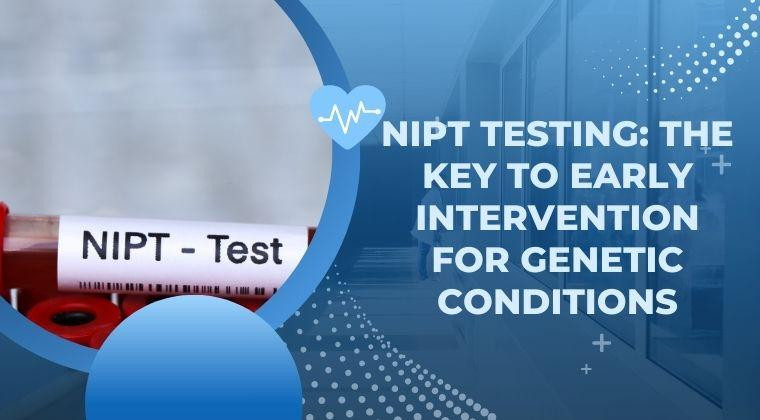Non-invasive prenatal testing (NIPT) has revolutionized prenatal care, offering expectant parents a safe and accurate method to screen for genetic conditions early in pregnancy. This article explores how the Nipt test in the UK facilitates early intervention, significantly improving outcomes for families and children affected by genetic disorders.
All about the Non-Invasive Prenatal Test
NIPT is a cutting-edge screening method that analyzes small fragments of fetal DNA circulating in a pregnant woman’s blood. Unlike invasive procedures such as amniocentesis or chorionic villus sampling (CVS), NIPT poses no risk to the fetus as it only requires a blood sample from the mother. Typically performed from the tenth week of pregnancy onwards, NIPT can detect chromosomal abnormalities like Down syndrome (trisomy 21), Edwards syndrome (trisomy 18), and Patau syndrome (trisomy 13) with high accuracy.
The primary advantage of NIPT lies in its accuracy and safety. By providing a reliable screening option without the risks associated with invasive tests, NIPT test accuracy allows for earlier and more informed decision-making.
Early Intervention and Its Importance:
Early intervention refers to the timely and proactive measures taken to address a child’s developmental and medical needs. In the context of genetic conditions, early intervention can mean the difference between a well-managed condition and one that significantly impacts the child's life. For instance, children diagnosed with Down syndrome can benefit from early physical therapy, speech therapy, and medical treatments that can improve their developmental outcomes. By identifying these conditions prenatally through NIPT, parents can be better prepared to access and utilize these interventions right from birth.
Ethical Considerations and Limitations
While NIPT offers numerous benefits, it also raises ethical questions. The possibility of increased pregnancy terminations based on NIPT results is a significant concern that needs careful consideration. Additionally, NIPT has its limitations; it cannot detect all genetic conditions, and there is a small chance of false positives and negatives. Therefore, genetic counselling is crucial to help parents understand the results and make informed decisions. Counsellors can provide comprehensive information about the implications of test results and guide families through their options.
The Future of NIPT and Prenatal Care
The future of NIPT looks promising, with ongoing advancements aimed at increasing its scope and accuracy. Research is underway to expand the range of detectable conditions and improve the precision of the test. As NIPT technology continues to evolve, it is poised to become an even more integral part of prenatal care, offering hope for earlier and more effective interventions for a broader array of genetic conditions.
Why choose Concepto Diagnostics?
Concepto Diagnostics stands out as a leader in NIPT technology and genetic counselling. They provide high precision in detecting genetic conditions, compassionate care from supportive staff, and convenience, with multiple locations across the UK for easy access.
In summary, NIPT represents a significant advancement in prenatal care, providing a safer, more accurate method for the early detection of genetic conditions. By facilitating early intervention, NIPT can drastically improve outcomes for children with genetic disorders. As technology progresses, the Nipt test in the UK will likely play an increasingly vital role in shaping the future of prenatal care and early intervention strategies, offering greater hope and support to families worldwide. Concepto Diagnostics is here to support you every step of the way. Schedule an appointment today to learn more about how NIPT can benefit you and your growing family.
Also Read: NIPT Testing for Chromosomal Abnormalities: Early Detection Matters

